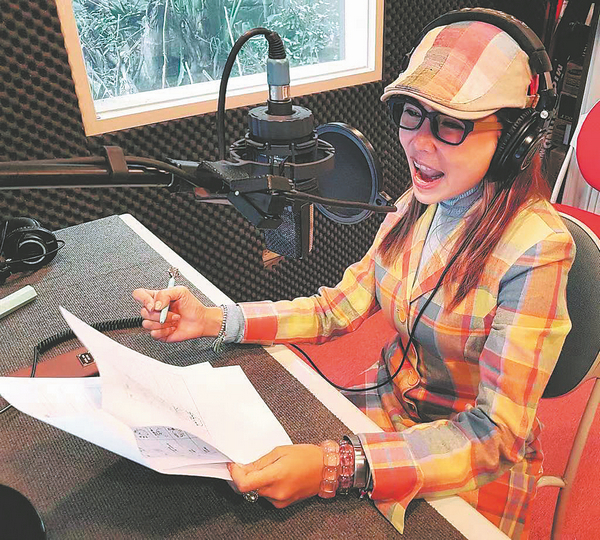

Facing the future
When it comes to AI dubbing, Lin said she is "actually trying to be less pessimistic about it … I think it's a future trend … and our future depends on how we blend with AI and work with it."
She said that real voice artists still get the lion's share of the work, and AI voice-overs are used more for audiobooks on the island. "Maybe in the future we will have more AI workmates," she said.
Lin, who is also a dubbing director, knows well the differences between AI and real dubbing artists when casting artists. "Real dubbing artists inject their soul and unique individual trait into the performance. AI doesn't have any soul or trait," she said.
As for the future of AI dubbing, Lin said the total replacement of real dubbing artists by AI will take time. "But now is the time to ponder what else can dubbing artists do?"
Lin, who has been associated with the profession for nearly 30 years, believes dubbing artists can transform themselves by, for instance, teaching the art of dubbing to younger people, publishing books, teaching in schools and giving lectures.
Voice artists should plan their career early, she said.
"This industry had been full of uncertainties even before the advent of AI, because we fulfill our tasks case by case," she said.